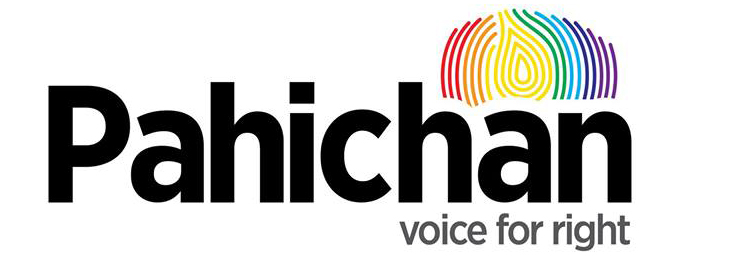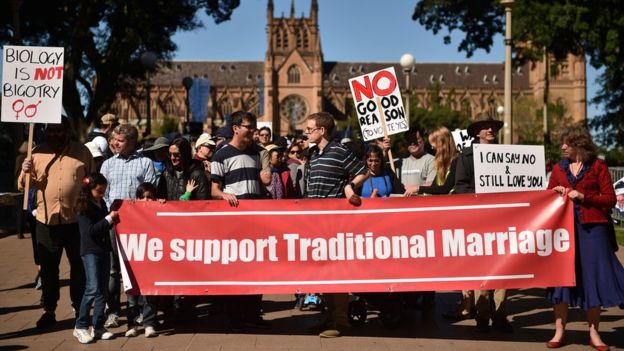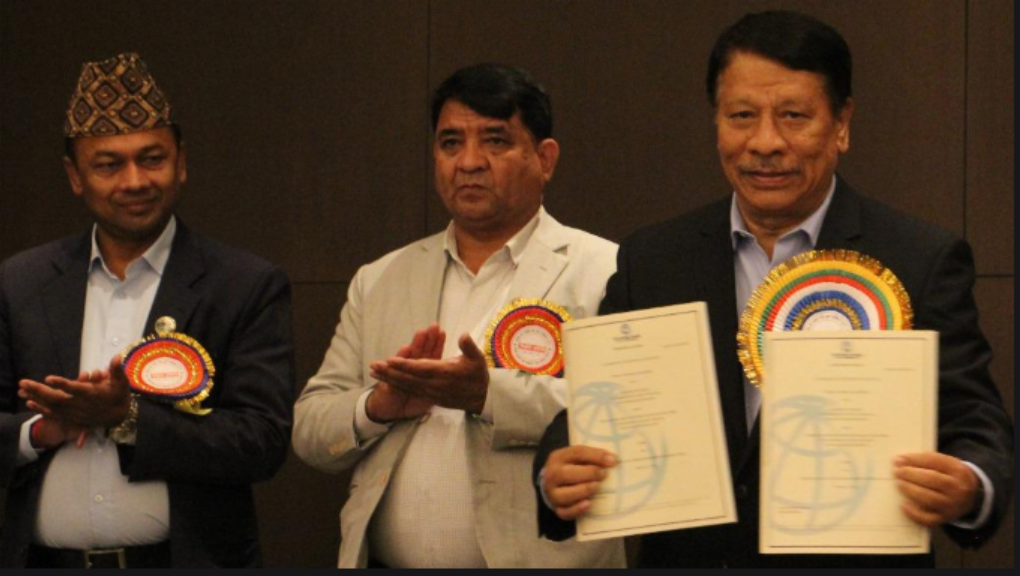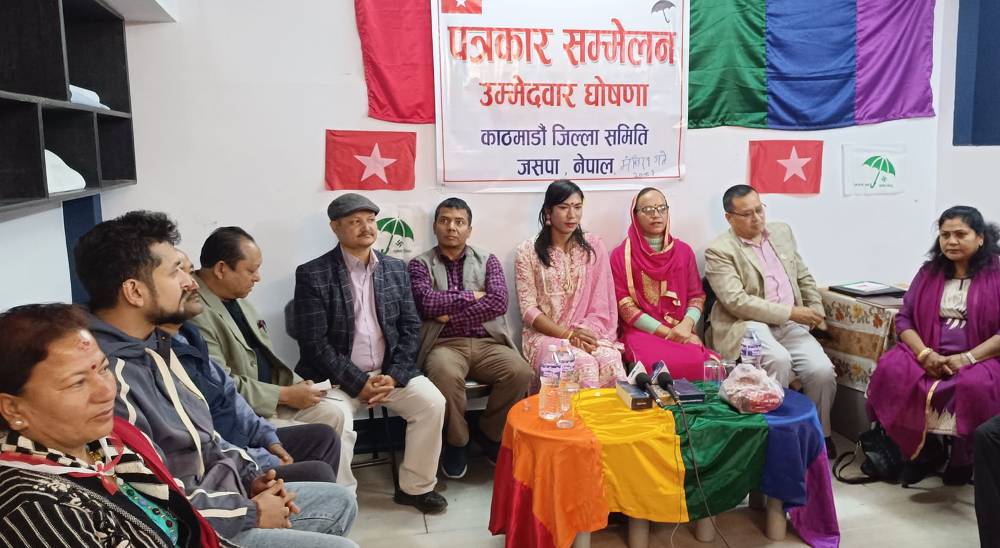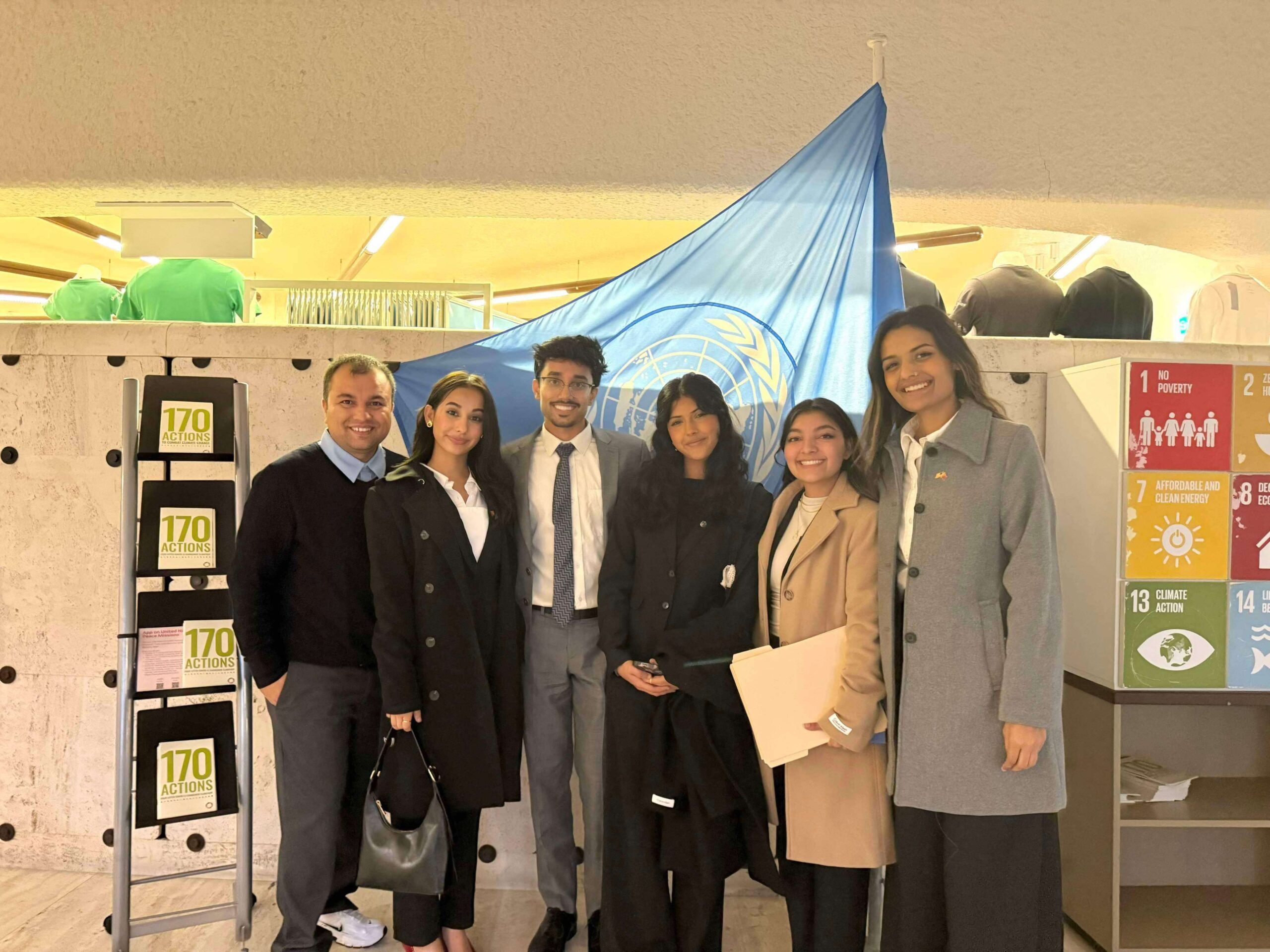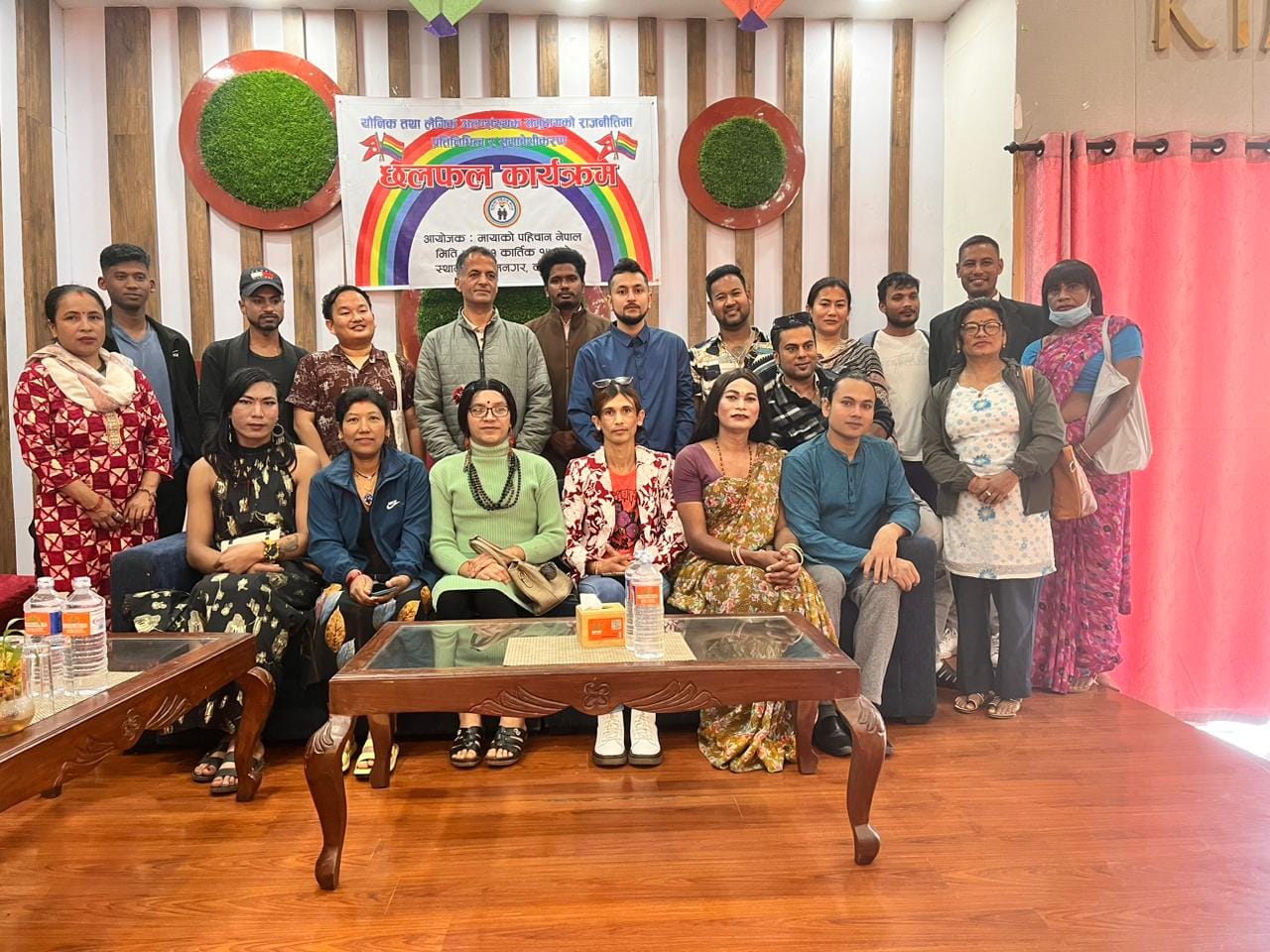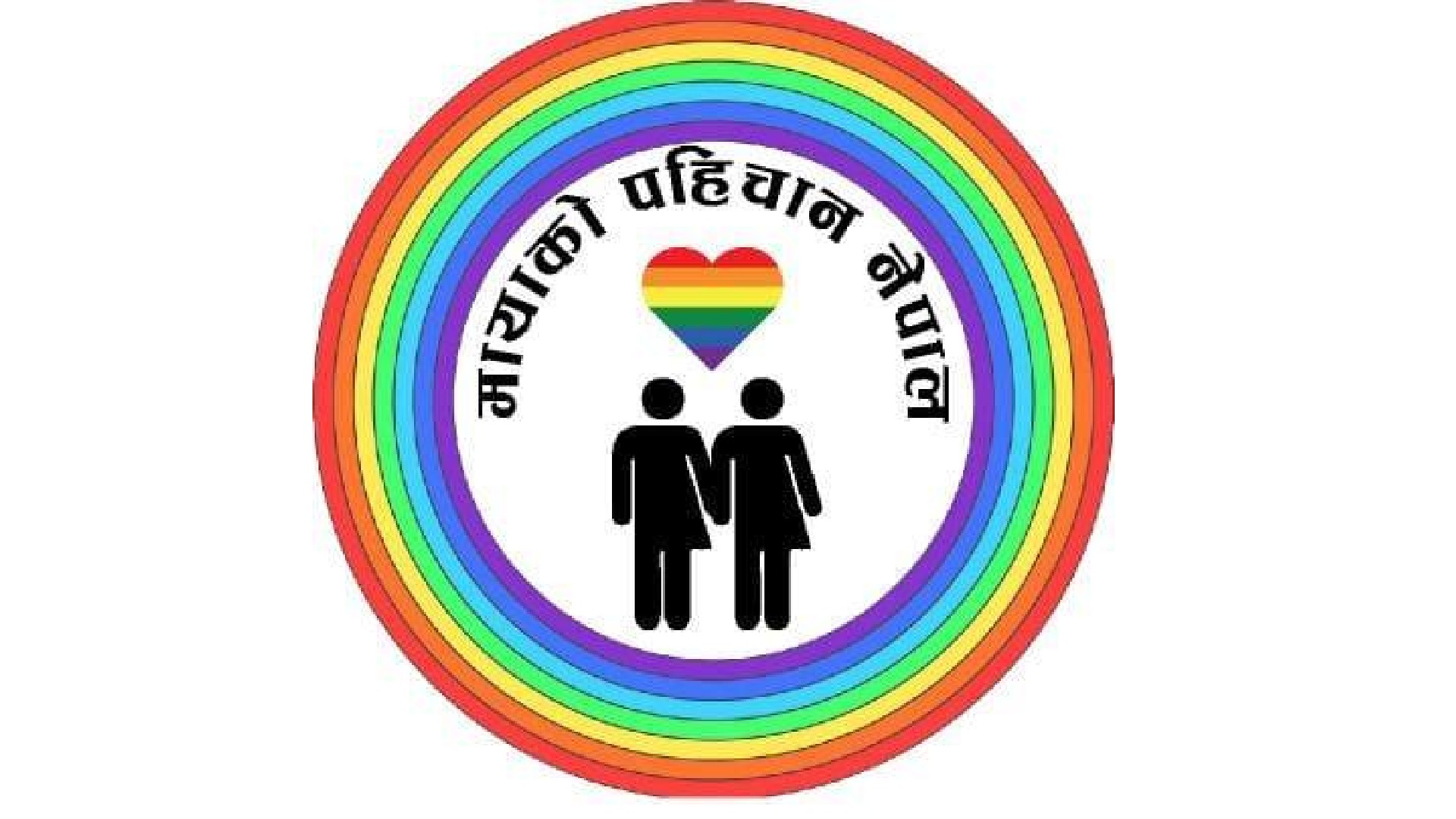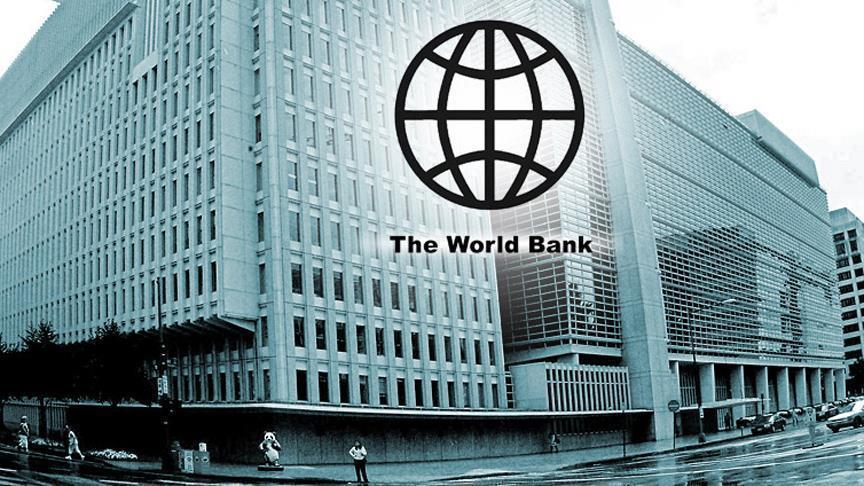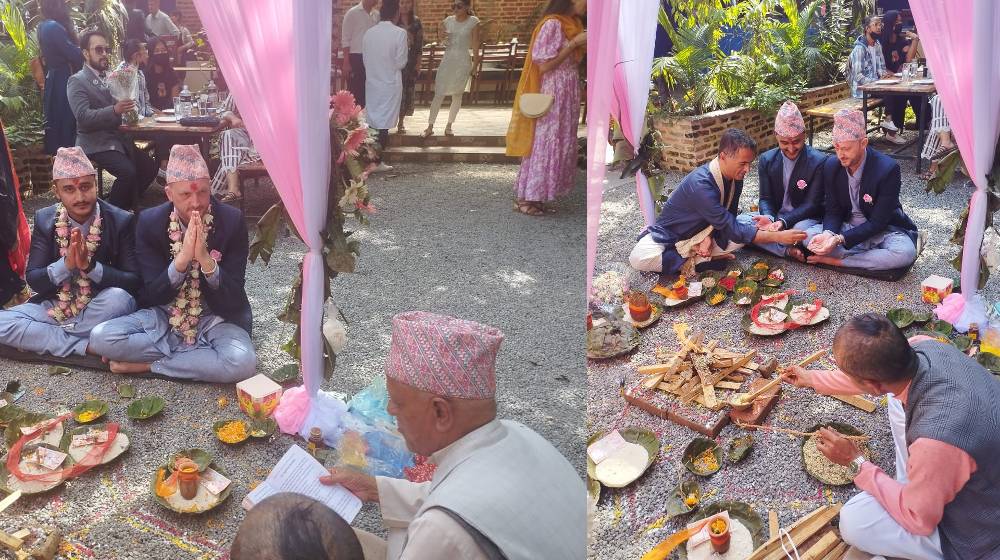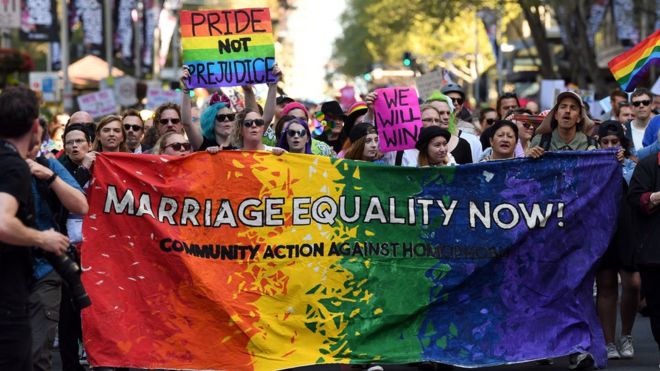 Image copyrightAFP
Image copyrightAFPKathmandu (Pahichan) September 12 – Australia has begun sending out ballots for a non-binding vote on support for legalising same-sex marriage.
The survey does not have the power to change the law but could lead to a vote in parliament.
Australian political leaders, including Prime Minister Malcolm Turnbull, have said they support the Yes campaign.
People will have until 7 November to cast their vote by mail and results of the voluntary poll are expected on 15 November.
Ahead of the ballots being mailed out, thousands of Australians dressed in rainbow colours rallied on Sunday in support of the campaign.
The No campaign has said it remains confident it has strong support.
Mr Turnbull said the country’s Marriage Act could be amended later this year if the vote shows support for change.
- The Australian weddings in waiting
- Australia anti-gay marriage ad criticised
- How will the survey work?
- ‘Large shift’ in Australia marriage views
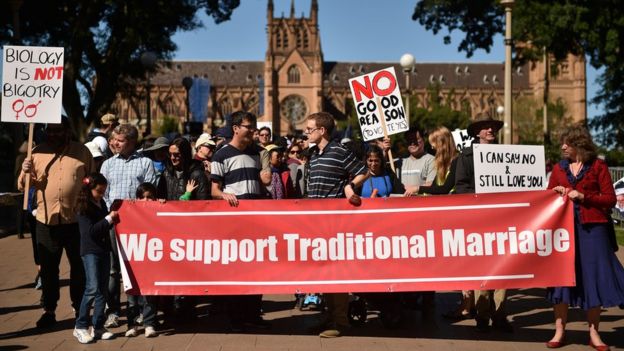 Image copyrightAFP
Image copyrightAFP“We encourage every Australian to vote in this survey, to have their say,” Mr Turnbull said last week.
The postal survey has drawn controversy over its A$122m (£75m, $97m) cost, fears that it will prompt hate-filled campaigns, and the fact that voting is voluntary. Australian has compulsory voting for elections.
It has also been criticised by same-sex marriage advocates as an unnecessary delay in resolving the debate, which they say could be settled immediately in parliament.
The High Court of Australia last week dismissed two separate objections to the validity of the poll.
Both sides have been fiercely campaigning. One No advert was criticised for linking the debate to school gender education, while Yes campaigners have been accused of trying to silence their opponents.
The Australian Bureau of Statistics confirmed the first ballots were being sent out on Tuesday, meaning they should arrive later this week. All forms will be mailed out by 25 September.
A poll released on Tuesday suggested that 70% of people who rated themselves “certain” to vote were in favour of changing the law.
Copy : http://www.bbc.com
